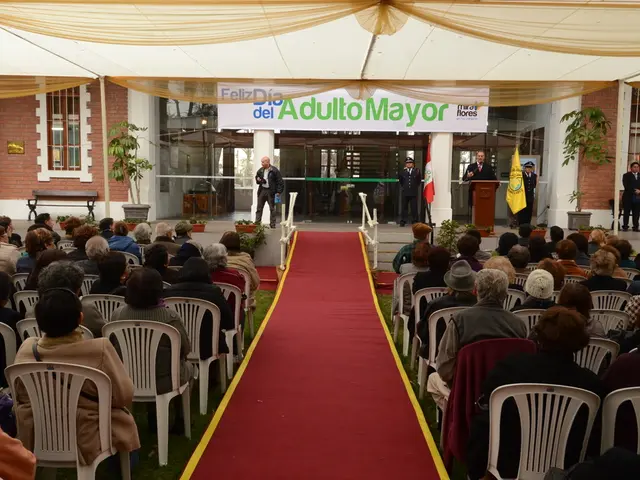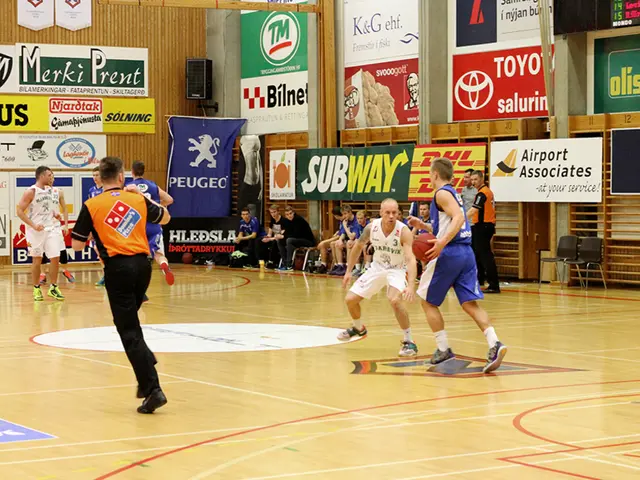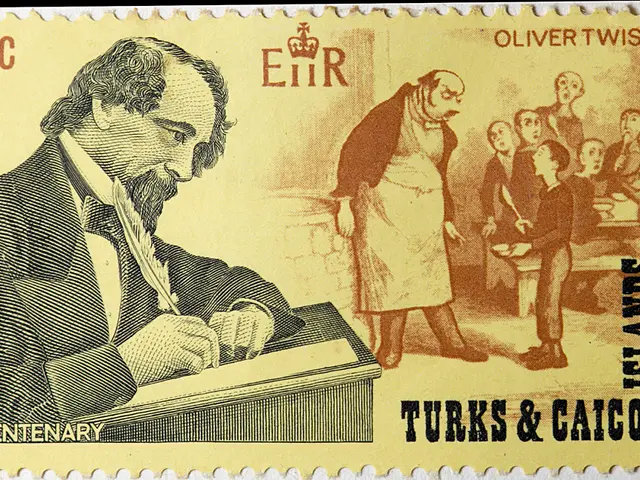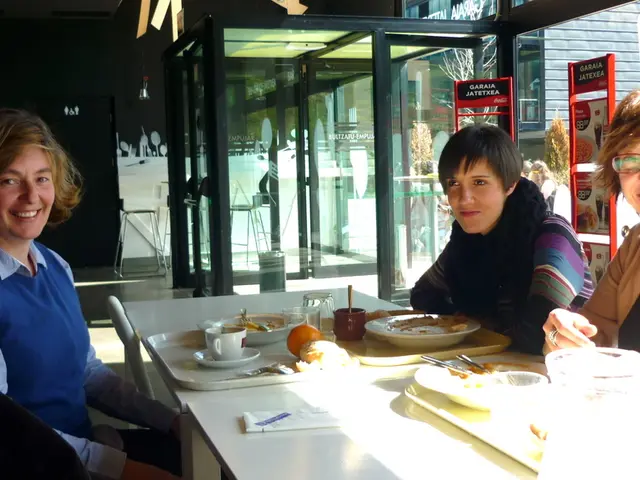Grabbing the Moment: Germany's Chance to Lead in Global Research Amid US Turmoil
Opportunity for Germany Arises Amid American Research Pressure? - Potential Opportunity for German Research Amidst U.S. Pressure
The policies of the current US President, Donald Trump, are creating turmoil in universities and research institutions across America. Thousands of jobs are being axed, funding is dwindling, and scientists are left jobless. This chaotic situation doesn't just threaten the US's scientific powerhouse, but it's also endangering science and wellbeing worldwide, as Robert Schlögl, the president of the Alexander von Humboldt Foundation, recently warned.
In contrast, Germany's research institutions and universities are keen on working closely with US researchers. Although most centers are reluctant to actively poach talent from America, they're definitely using other means.
MPG Opens Doors for Displaced US Scientists
Take, for instance, the Max-Planck-Gesellschaft (MPG). They aim to beef up their Transatlantic Program with additional private funds. This move is expected to provide a lifeline to distressed scientists who can no longer continue their research in the US. The US has been the driving force and the MPG's most important partner country for decades – contributing to every fourth publication in MPG.
Lured by Germany's promises, the MPG has witnessed a surge in US applications for leadership roles in research groups. MPG President Patrick Cramer revealed this trend in an interview with "Der Spiegel."
Precious Talent, Not Prey
The Leibniz Association’s spokesperson, Tim Urban, suggests targeted poaching of American colleagues could further cripple US science. Instead, they advocate for intensified cooperation to support their US counterparts. While short-term responses might be necessary, short-term interim financing, such as research stays in Germany, could help researchers facing uncertain conditions in the US, especially those working in crucial areas like climate, inequality, and life sciences.
Historical Migration and Brain Drain
Scientific migration isn't a new phenomenon. In the past, dramatic shifts have occurred, such as when numerous Jewish and regime-critical scientists left Germany after the Nazi takeover in 1933. More recently, the exodus of hundreds of Russian scientists followed the Russian attack on Ukraine. Currently, international PhD students and postdocs from the US are showing interest in Germany's science ecosystem.
Universities See a Silver Lining
The current situation in the US is already affecting German universities. American partners are eager to collaborate more closely. Universities in Berlin, Leipzig, and Frankfurt have reported increased interest from US scientists.
Opportunities Galore for German Universities
German universities view this as a chance to strengthen their profile. If suitable opportunities arise from the US crisis, Frankfort University, for instance, will seize them. However, universities have to adhere to strict rules regarding appointment procedures.
Germany's Top Scientists Call for a Special Funding Program
Leading German scientists have proposed the creation of a 'Meitner-Einstein program' to lure outstanding US scientists to German universities and research institutions. Funded by the Federal Ministry of Research and managed by the German Research Foundation, this program could quickly generate a significant number of professorships – targeting scientists whose work is being hampered or curtailed in the US.
Supporting Displaced Scientists
Alongside this demand, the Alexander von Humboldt Foundation, led by Robert Schlögl, is willing to financially support and offer temporary refuge to top scientists from the US.
Keywords:- USA- Germany- Donald Trump- US President- Research institution- Robert Schlögl- Max Planck Society- Immigration- Visa- Deregulation- Funding- Trade Policies- Tariffs- Environmental Regulations- Paris Climate Agreement- Sustainability- Climate Research- Technology- Innovation
Insights:
- The Trump administration's immigration and visa policies, deregulation, trade policies, and environmental regulations have significantly impacted the US research environment.
- Germany has experienced increased interest from US scientists, viewing this as an opportunity to attract talent, foster global collaboration, and lead in areas like sustainability and technology.
- Researchers in the US are facing job losses and dwindling funds due to the policies of President Donald Trump, causing concern for the future of science worldwide.
- In contrast, Germany's research institutions are showing eagerness to collaborate with US researchers, with the Max-Planck-Gesellschaft (MPG) taking the lead by offering a lifeline to distressed US scientists.
- The MPG aims to bolster its Transatlantic Program with additional private funds, providing a much-needed opportunity for scientists who can no longer continue their research in the US.
- MPG has witnessed a surge in US applications for leadership roles in research groups, a trend revealed by MPG President Patrick Cramer in an interview with "Der Spiegel."
- The Leibniz Association, instead of poaching American colleagues, advocates for intensified cooperation to support US researchers, particularly in crucial areas like climate, inequality, and life sciences.
- Scientific migration isn't a new phenomenon, with the exodus of Jewish and regime-critical scientists from Germany after the Nazi takeover in 1933 being a historical example.
- Today, international PhD students and postdocs from the US are showing interest in Germany's science ecosystem, due in part to the current political climate in the US.
- Universities in Berlin, Leipzig, and Frankfurt have reported increased interest from US scientists, viewing this as an opportunity to strengthen their profile.
- Frankfort University, among others, is prepared to seize opportunities that arise from the US crisis, but universities must adhere to strict rules regarding appointment procedures.
- Leading German scientists have proposed the creation of a 'Meitner-Einstein program' to lure outstanding US scientists to German universities and research institutions.
- The Alexander von Humboldt Foundation, led by Robert Schlögl, is willing to financially support and offer temporary refuge to top scientists from the US.
- The US's current political environment, with its immigration and visa policies, deregulation, trade policies, and withdrawal from the Paris Climate Agreement, is hindering science, innovation, and sustainability, creating opportunities for countries like Germany to lead in these areas.








